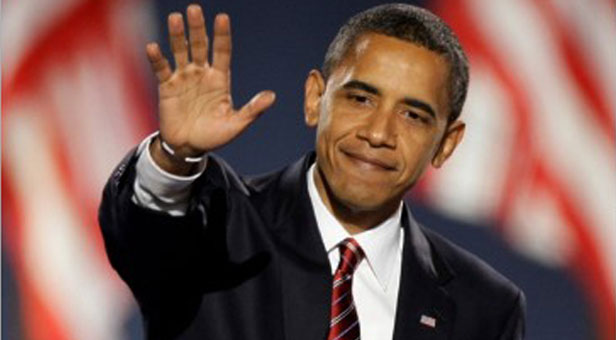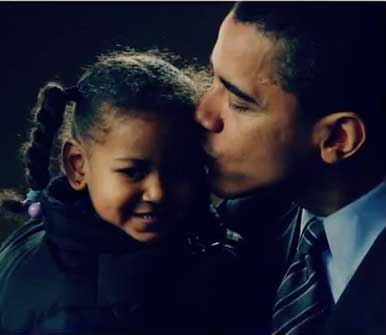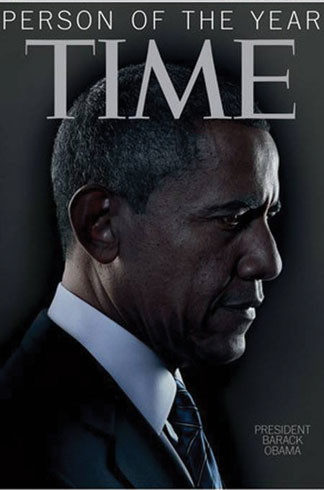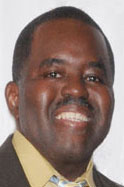

Obama leads in electoral votes
One Presidential election down, one to go
By George E. Curry
WASHINGTON, D.C. (NNPA) – With Tuesday’s popular election finally over, President Barack Obama is looking toward Dec. 17, 2012 when the Electoral College officially determines who becomes the next President of the United States.
The recently concluded popular vote notwithstanding, a candidate must get a majority of the 538 electoral votes in order to occupy the White House. Obama is on track to gain more than the 270 votes needed to claim a majority. His team mastered the process four years ago when the Obama/Biden ticket won 52.9 percent of the popular vote yet captured 67.8 percent (365 votes) of the Electoral College. The Republican slate of John McCain and Sarah Palin won 45.7 percent of the popular vote in 2008, but only 32.4 percent (173) of the electoral votes.
With some states solidly Democratic and some reliably Republican, the winner of presidential elections is usually determined by battleground or swing states, which are less predictable in their voting.
“In all but the most lopsided presidential campaigns, the electoral votes controlled by battleground states will provide the margin of victory for the winning candidate,” according to a report by the Congressional Research Service (CRS) titled, “The Electoral College: How It Works in Contemporary Presidential Elections.”
The report noted, “In 2004 and 2008, candidates concentrated two-thirds of their vi-sits and ad money in the post-convention campaign in just six closely divided ‘battleground’ states – with 98 percent going to just 15 states.”
Although the final figures are not in yet, a similar pattern is expected to hold true for 2012. Both candidates have campaigned in only 10 states since their respective national political conventions. Even more telling, the presidential candidates and their running mates have spent nearly two-thirds of their recent campaign time in three states – Ohio, Virginia and Florida.
Trying to find a clear path to at least 270 electoral votes explains the frenzied travel schedule of Obama and Romney in the closing days of the campaign as they crisscrossed the country in search of last-minute votes, especially in Ohio (18 electoral votes), Virginia (13), Florida (29), Pennsylvania (20), North Carolina (15), Wisconsin (10), Colorado (9), Iowa (6) and New Hampshire (4). Every state except Maine and Nebraska has a winner take all electoral system.
Because no Republican has ever won the White House with-out carrying Ohio, the Buckeye state became the battleground of all battlegrounds.
Romney, who opposed the auto bailout, ran a misleading TV ad in the closing days of the campaign that may have back-fired on him.
In the ad, which featured images of automobiles being crushed, the announcer said, “Obama took GM and Chrysler into bankruptcy and sold Chrysler to Italians who are going to build Jeeps in China. Mitt Romney will fight for every American job.”
Chrysler CEO Sergio Marchionne, who had vowed to stay away from election politics this year, felt compelled to respond. He issued a statement saying, “I feel obliged to unambiguously restate our position: Jeep production will not be moved from the United States to China. Jeep assembly lines will remain in operation in the United States and will constitute the backbone of the brand. … It is inaccurate to suggest anything different.”
He said Chrysler plans to produce Jeeps in China but only for local market sales. Most major automakers now have production facilities in China to avoid huge import duties.
Politifact.com noted, “The ad miscasts the government’s role in Fiat’s acquisition of Chrysler, and it misrepresents the outcome. Chrysler’s owners had been trying to sell to Italy-based Fiat before Obama took office. The ad ignores the return of American jobs to Chrysler Jeep plants in the United States, and it presents the manufacture of Jeeps in China as a threat, rather than an opportunity to sell cars made in China to Chinese consumers. It strings together facts in a way that presents an wholly inaccurate picture. We rate the statement Pants on Fire!”
That rating represents the fact-checking group’s biggest lie.
Another political accountability organization, FactCheck.org, stated, “The ad also misleads Ohio voters when it says ‘Obama took GM and Chrysler into bankruptcy.’ That’s true, but not the full story. The facts are that Romney in 2008 advocated that U.S. automakers to go through a ‘managed bankruptcy’ without the kind of extensive government assistance that Obama ultimately provided.”
Even Mother Nature apparently favored Obama.
Superstorm Sandy, which wreaked havoc on New Jersey and New York, costing more than 100 lives, allowed President Obama to showcase his leadership skills in sharp contrast to the way George W. Bush responded to Hurricane Katrina.
New Jersey Gov. Chris Christie, one of Romney’s strongest supporters, put politics aside and was effusive in his praise of Obama’s handling of the disaster. “The president has been all over this and he deserves great credit,” the governor said on MSNBC’s “Morning Joe.”
During a television interview on “Fox and Friends,” Christie was asked about the possibility of Romney inspecting the damage in New Jersey.
He replied, “I have no idea, nor am I the least bit concerned or interested. I’ve got a job to do here in New Jersey that’s much bigger than presidential politics, and I could [not] care less about any of that stuff.” He added, “If you think right now I give a damn about presidential politics, then you don’t know me.”
Romney evidently did not know how well Obama, the former community organizer, had organized his Electoral College campaign.
Under the Electoral College, the most populous states hold an advantage. For example, California, the nation’s largest state, has 55 electoral votes, which is 20.4 percent of the votes needed to claim a majority. California is followed by Texas with 38 electoral votes; Florida and New York with 29 each and Illinois and Pennsylvania with 20 electoral votes each. And because Blacks and Latinos are concentrated in the larger states, they have significant influence on the outcome in those areas.
Although most attention in recent weeks has been placed on the popular vote, the attention now shifts to the Electoral College, which has its roots in the U.S. Constitution.
“Article II, Section I of the Constitution, as amended in 1904 by the 12th Amendment, sets forth the requirements for election of the President and Vice President,” says the Congressional Research Service report. It said the constitution “authorizes each state to appoint, by whatever means the legislature chooses, a number of electors equal to the combined total of its Senate and House of Representatives delegations, for a contemporary total of 538, including three electors for the District of Columbia.”
State electoral votes are reported to Congress, which usually meets in a joint session on Jan. 6 following a presidential election. However, because Jan. 6, 2013 falls on a Sunday, Congress will probably meet the following Monday or Tuesday.
Vice President Joseph Biden, as president of the Senate, will preside over the joint session. He will open the electoral vote certificates from each state in alphabetical order and pass the certificates to four vote counters or tellers, two appointed by the House and two appointed by the Senate. After the votes are counted, the results will be announced by the vice president.
The electoral outcome has matched the popular vote in 47 of the 51 presidential elections since ratification of the 12th Amendment in 1804. The exceptions were 1876, 1888 and 2000 when George W. Bush was declared president after losing the popular vote to Al Gore by 500,000 votes. No candidate won the majority of the Electoral College vote in 1824, leaving the election of the president to the House of Representatives.
Regardless of who wins the Electoral College, the debate will continue over whether it should be replaced by direct elections.
The Congressional Research Service report noted, “Proponents of direct popular election argue that it is simple, democratic, and foolproof: the candidates with the most popular votes would win under any conceivable circumstance. Opponents, and defenders of the electoral college, claim that the existing system is an integral and vital element in the U.S. federal system, that it contributes to a stable and ideologically diverse two party system, and that it has delivered the ‘people’s choice’ in 47 of 51 presidential elections since the 12th Amendment came into effect in 1804—what they characterize as an excellent track record.”





Be the first to comment